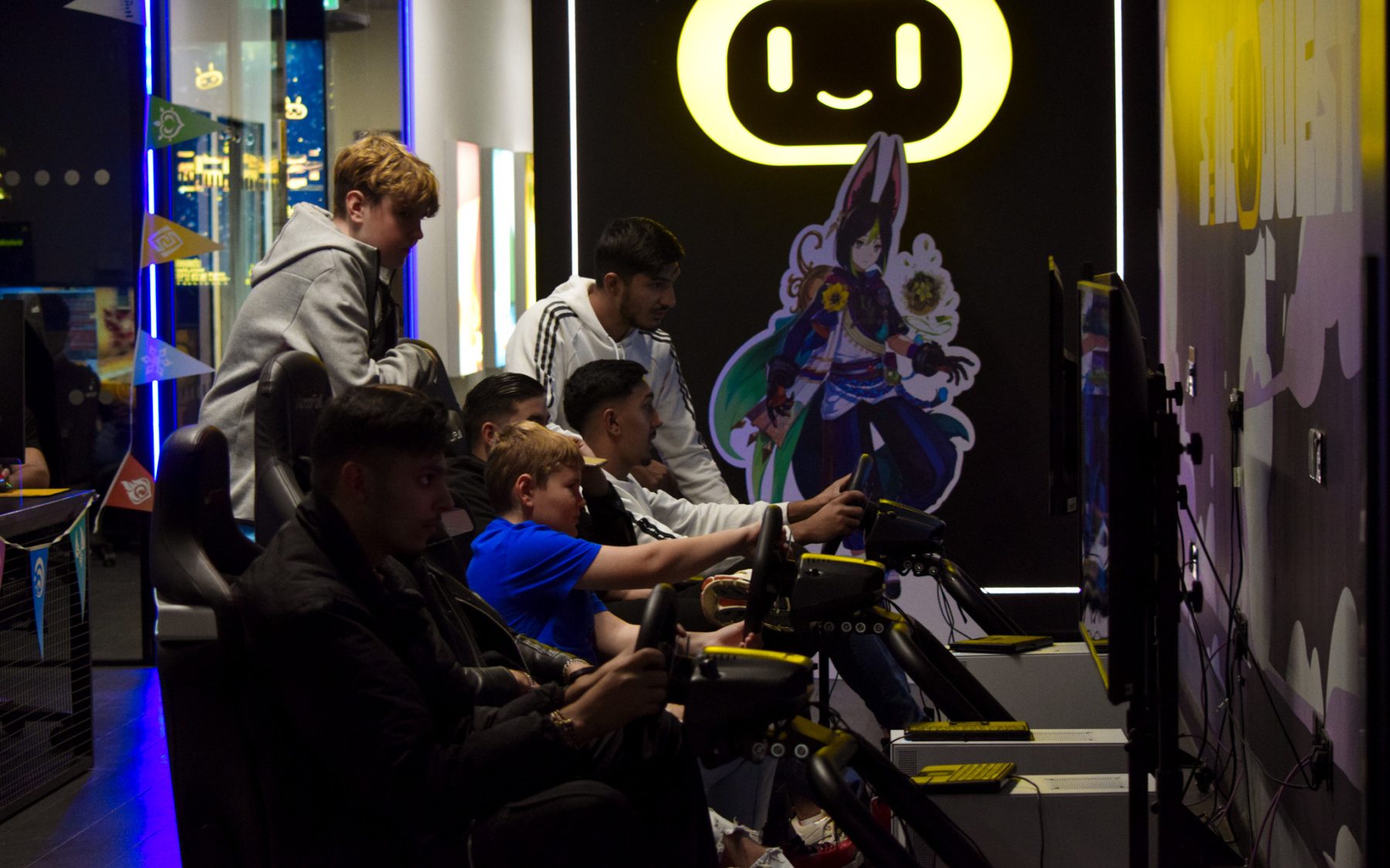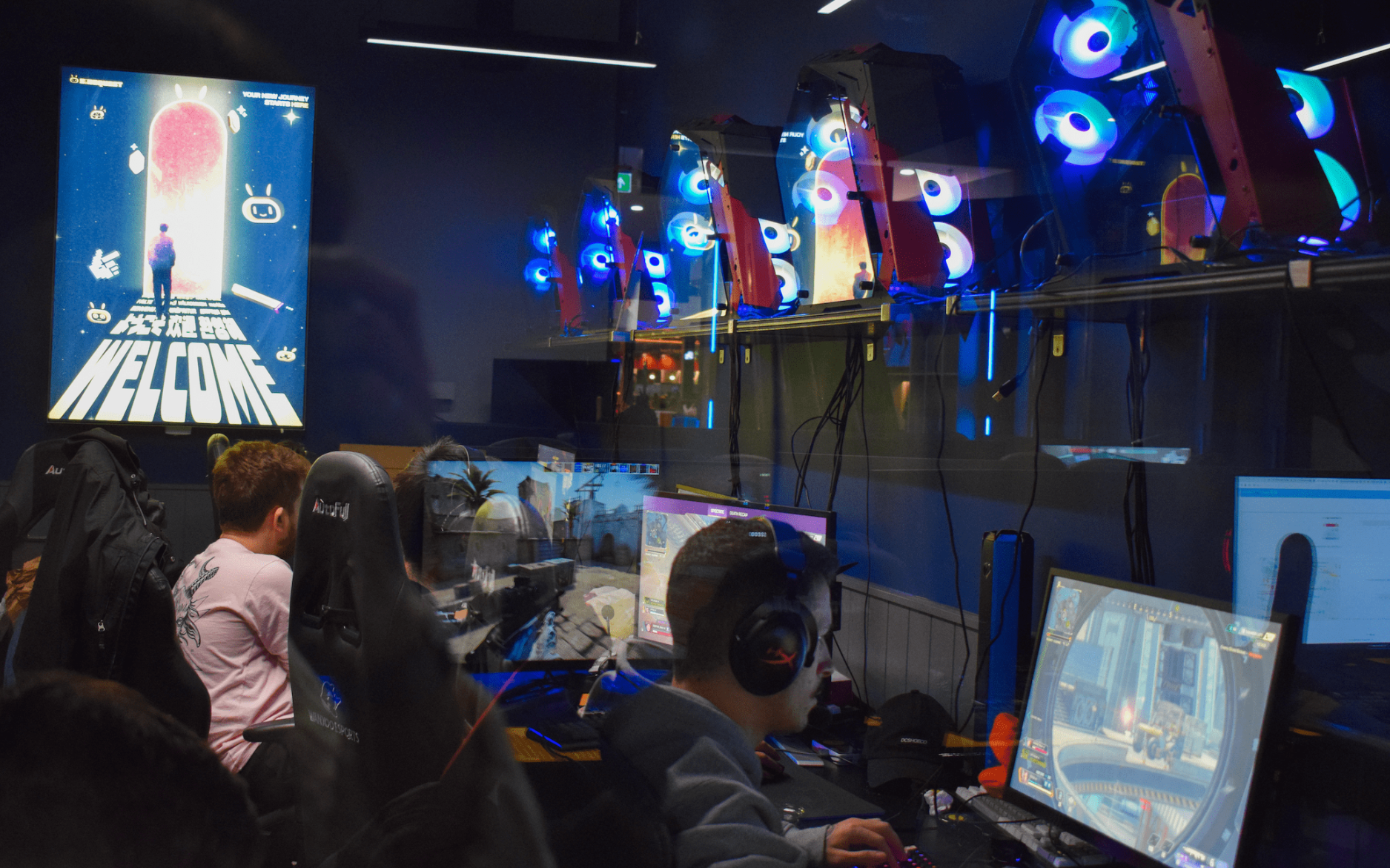
For those of us who have the privilege of attending physical esports events, the experience is unforgettable.
The shared delight of the experience is the reason that a 2020 post-pandemic survey found that over half of gamers were willing to fork out for travel, accommodation, and venue entry in order to attend an esports event, even though just 17% had enjoyed a visit at the time.

But for esports fans looking for a humbler grassroots alternative to large-scale tournaments, some companies are delivering smaller LAN cafes to capitalise on the growth of the wider gaming industry, to deliver an esports experience to their customers.
SideQuest’s UK arm began as an expansion of Chinese company Wanyoo. It currently runs five venues in the UK with decked-out PCs, social gaming spaces, and a viewing area that hosts viewing parties of large international events.
The move into the UK represents an investment in a $7.5bn (~£6.2bn) gaming market, predicted to grow by 5% this year. It’s also a vote of confidence for the esports sector itself, where a shaky crypto market and bear economy has meant dwindling investment over the last two years.
Events and Community Coordinator Dalian Ghent told Esports Insider that he sees a massive opportunity to court more casual gaming fans. “A lot of people that I interact with on a daily basis don’t even know what esports is, particularly parents, because it’s a new industry.”
SideQuest runs its LAN centres from 12pm – 10pm with overnight opening hours at select locations until 6am, and has consoles and sim racing rigs which it hopes will attract a more casual UK audience. The brand is also staying true to its Chinese roots. “Bubble tea is a main staple for us, because it’s part of the LAN culture, and part of our brand,” Ghent said.
What is the market for LANs in the West?

In Asia, where from-scratch internet installation and smaller living spaces created a thriving LAN-centre or ‘PC Bang’ culture, physical venue growth has been explosive. Unofficial figures now put the number of LAN venues at around 20,000 in South Korea alone.
SideQuest has also learned that, just as in Asia, a cost-of-living crisis and lack of space is incentivising some Londoners to use its facilities to game — without forking out thousands for a pricey home setup.
“There’s an affordable option here,” Ghent said. “You pay per hour, or you get a membership. It’s really cheap, especially in this economic climate, especially in London.”
PC Bangs are also a credible reason for historic Chinese and South Korean dominance in esports like StarCraft and League of Legends. Creating gaming hubs in the UK is one option for bolstering the country’s player pipeline.
SideQuest already proved its capacity to do just that, offering its venues as scrim facilities to 12 teams visiting London for the Apex Legends Global Series in March. The League of Legends Mid-Season Invitational visits the capital later in May, and the Rocket League Championship will arrive in summer. All of this, Ghent noted, will give SideQuest further opportunities to collaborate with the international esports scene and get feedback on its venues.
How do you keep ‘core’ and ‘casual’ gamers happy?
The industry’s mainstream expansion means that venues will increasingly need to cater to hardcore esports fans and players, while ensuring that gamers experiencing LANs or esports viewing parties for the first time aren’t turned off too early.
Ghent says that SideQuest’s diverse customer base, which includes console players, tourists and families, highlights the importance of creating a welcoming environment that caters to a range of interests and skill levels. SideQuest actively recruits gaming enthusiasts who enjoy the process of speaking to customers about all aspects of gaming to make all visitors welcome.
Through events like viewing parties, SideQuest hopes to introduce new audiences to the excitement of competitive gaming and build a stronger player pipeline in the UK. As videos from fans watching Fnatic’s recent VCT LOCK//IN win prove, the atmosphere of a viewing party is electric. Ghent agreed. “It’s that social interaction that is able to bring everyone together and create those massive memories that you’re going to probably not forget.”
Alongside its ambitions to grow, SideQuest is also making meaningful steps to elevate the UK esports scene. “We’re trying to get in contact with a lot of teams throughout the UK to work with them,” Ghent said. SideQuest is running coaching academies to train aspiring players and coaches to develop their skills and prepare them to compete in a physical LAN environment.
As purpose-built esports viewing venues become more common, so should LAN centres and gaming cafes. Hubs like those provided by SideQuest not only present an opportunity for casual fans to experience the thrill of esports for the first time, but also help build the esports community as a whole as it navigates a return to normalcy after the pandemic.
Supported by SideQuest




